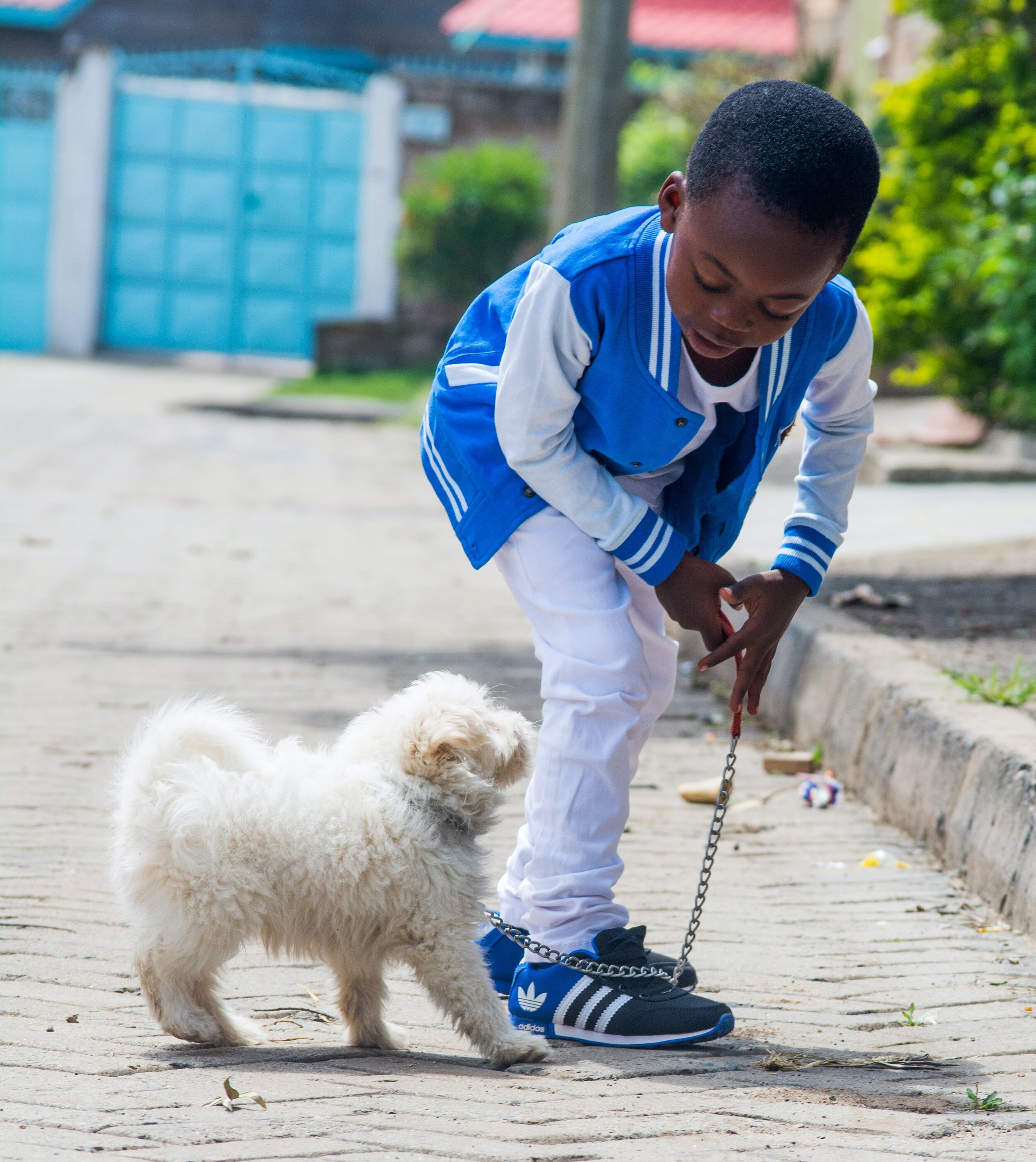Many children dream of owning a pet puppy. But did you know that owning a puppy has a multitude of benefits for your child? We’re giving you the top reasons how bringing a puppy home can positively impact your child’s growth and development!
Any dog lover could probably say they’ve wanted a puppy since childhood. Owning a puppy has more benefits than fulfilling a childhood fancy. In fact, puppies help children learn invaluable life skills, positively impact their emotional and cognitive development, and offer unconditional companionship and love! If you’re still thinking about bringing a puppy home, learn about all the benefits puppies can bring to your children!
BRINGING A NEW PUPPY HOME? SIGN UP FOR OUR ONLINE PUPPY TRAINING CLASSES!
Puppies Teach Responsibility
One of the benefits of bringing a new puppy home is the level of responsibility it takes to care for them. You might be thinking that the puppy’s care would fall mostly on you, the parent, and adult, and you’re not wrong! But, you can definitely make puppy care more of a family activity! Depending on your children’s ages, you can assign specific responsibilities to them. But if your child is still on the younger side (typically under 12) have them be your assistant to things like daily feedings, baths, or collecting items around the house you need for your puppy like their chew toys, leash, and harness, or paper towels when your puppy has an accident, to name a few! With the help of a daily puppy schedule, your kids will begin to learn along with you what your puppy needs at what time of day, and you can make it a part of your kids daily routine to help care for the new furry family member!
Puppies Teach Kids to be Social and Boost Self-esteem
Not all kids are comfortable being outgoing and socializing. Puppies can help kids develop more self-esteem and while socializing is still limited, puppies can help kids’ self-esteem in situations through interactive activities like meeting other dogs and their owners, and talking to other kids their age about their new puppy! Additionally, puppies can help alleviate the feelings of isolation, especially through the pandemic, from not being able to socialize as much with other children.
Puppies Help Kids Stay Healthy and Active
Going for walks, running around in the yard playing Fetch, hiking, swimming together -- you name it, puppies are great for keeping your kids active and outside! Puppies need to exercise their energy and explore the outdoors -- it’s their nature! Plus having to go outside to potty, can help maintain a regular level of activity each day, and help build up your child’s immune system from common allergens from all the outdoor time! At school, many kids have the chance to go to gym class but now with social distancing still the norm, getting outside under the sun is more important than ever! Bringing a new puppy home will definitely keep your child on the go and all the healthier for it by involving them in your puppy’s outdoor activities along with you!
Puppies Help with Kids Emotional Development
Kids, especially younger school-age kids, may still be learning the concepts of sharing attention and showing compassion toward others. Bringing a puppy home can quickly show your child that providing care and time to another living being can be a good thing! Your child could also learn that a puppy needs gentle and loving treatment in order to grow up into a friendly and happy adult dog. One of the best things about puppies is the amount of unconditional love they provide to their entire family. Above all, this is the most important benefit of bringing home a new puppy that is essential for your child’s well-balanced emotional development!
Puppies can Help Kids Improve Thinking and Speech Skills
A lot can be said about the positive emotional benefits of bringing home a puppy, but they can also impact your child’s thinking and speech! Puppies require puppy obedience training which is a great activity that your children should participate in if they are old enough! Learning different commands and training techniques can help your child develop problem-solving skills, memorization, and adaptive thinking! Additionally, introducing activities like reading a story to their puppy out loud for bedtime is a great way to make developing reading skills fun and enjoyable for your child!
THINK RAISING A PUPPY IS HARD? ONLINE PUPPY TRAINING CLASSES MAKE PUPPYHOOD EASY!
Are you still thinking about bringing home a new puppy? Kids can greatly benefit from having a puppy at home but puppies are a source of companionship and love for the whole family! Ultimately your entire family should be on board and ready to welcome a new puppy! Consider your family’s lifestyle, your activity level, and the time you have to devote to your new family member before taking the plunge! The perfect puppy is out there and ready to enrich your child’s life!
Check out these blogs related to puppy training and more!
How to Teach Your Puppy to Walk on a Leash!











